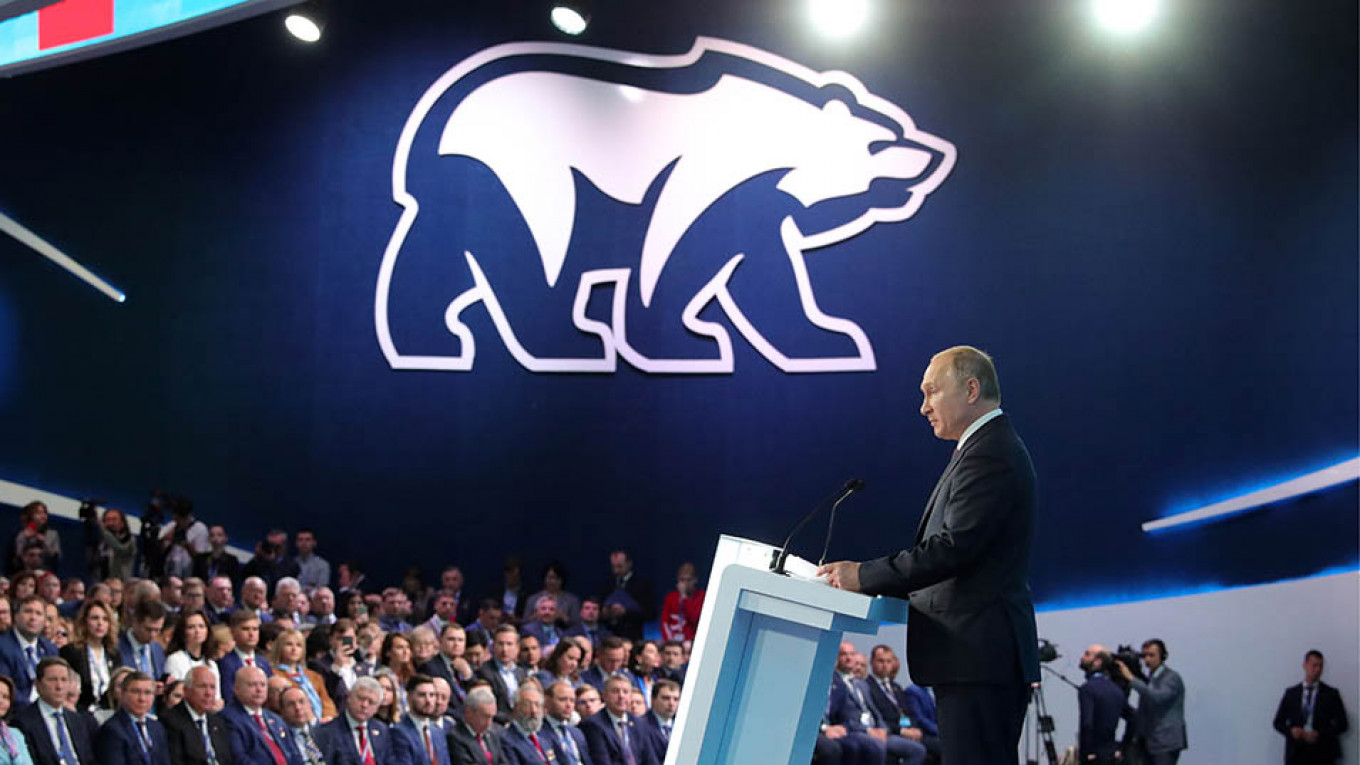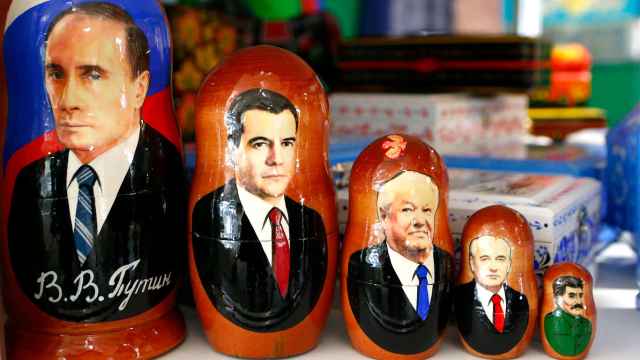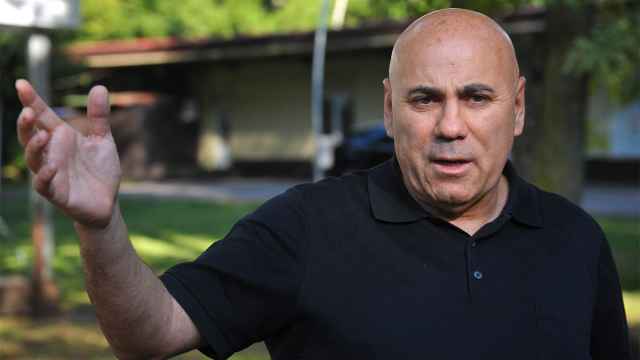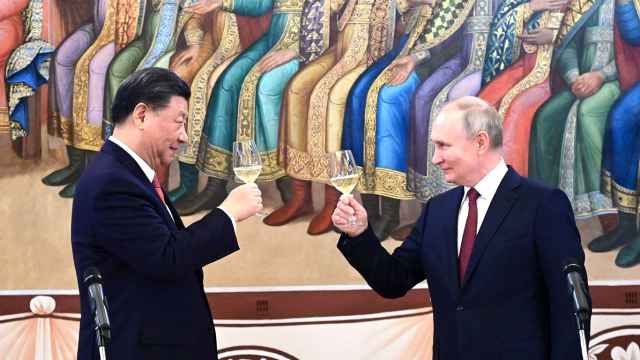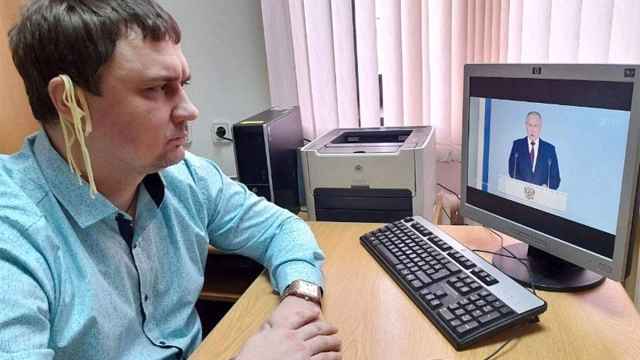If Vladimir Putin plans to keep power in Russia beyond 2024, he must solve a more immediate problem. How can he keep his iron grip on parliament at elections next year when the ruling party is so unpopular?
United Russia is near a historic low in opinion polls after five years of economic stagnation. The Kremlin faces the task of retaining the party’s constitutional super-majority in the lower house of parliament without resorting to the sort of tactics that ignited protests in the past against alleged mass fraud.
The president is counting on new Prime Minister Mikhail Mishustin to spark a perhaps short-lived upturn in the economy that’s sufficient to boost living standards in time for the authorities to claim credit at the State Duma elections, according to three people close to the government
“Putin has built a cabinet that will be associated with a spurt of growth,” said Mikhail Dmitriev, the economist who correctly predicted the largest protests of Putin’s rule in 2011 and 2012. “The authorities know perfectly well they have only 18 months left before the elections to fix this.”
The longest-serving Kremlin leader since Soviet ruler Josef Stalin must step down as president in 2024 to avoid violating term limits. Putin unveiled proposals for sweeping changes to the constitution on Jan. 15 and replaced long-serving Prime Minister Dmitry Medvedev. The constitutional changes, which may be confirmed as soon as April, would limit the president’s authority while bolstering the Duma.
They would also hand new powers to the State Council, currently an advisory body headed by Putin that may become a vehicle for him to continue to rule once he leaves the Kremlin.
Growth surge
Andrey Belousov, Russia’s new first deputy prime minister, vowed to oversee a “serious injection of liquidity” into the economy at a government meeting with Putin on Wednesday. About 300 billion rubles ($4.7 billion) a year will be spent from the National Wellbeing Fund and the government will work closely with the central bank to avoid a jump in inflation, he said.
Some officials expect annual economic growth in 2020 and 2021 to accelerate to as much as 2.5% from just 1.3% last year, the slowest expansion in three years. A burst of spending under the former government and six straight interest rate cuts by the central bank since June are being bolstered by a fresh injection of public funds that could total $34 billion this year.
The previous government ran the widest budget surplus in a decade but made little progress on the so-called National Projects, a $400-billion infrastructure investment plan that’s the centerpiece of Putin’s domestic agenda in his final term.
“You don’t need to be super bright to forecast higher economic growth” as a result of the policy shifts, said Sofya Donets, an economist at Renaissance Capital in Moscow, who has one of the most optimistic forecasts for 2020.
Election risk
A lackluster showing for United Russia in the September 2021 elections could hamstring Putin’s plans by potentially depriving him of the two-thirds majority he’d need to make any further changes to the country’s basic law.
With the party’s rating hovering at around a third, the Kremlin considered changing the make-up of the 450-seat legislature to boost United Russia’s prospects. This would have halved the share of deputies elected by party list to 25%, with the remainder representing local districts where many pro-Kremlin candidates run nominally as independents to avoid the stigma of association with United Russia.
That option is not being discussed now, said one person close to the Kremlin. Such a move isn’t likely to give the ruling party the support it wants in the 2021 elections, the Institute of Socio-Economic and Political Research Foundation, which works with the Kremlin, said in October in a report. The party holds 341 seats in the current parliament even though it gained only 54% support at the last elections in 2016.
Instead, the Kremlin is calculating that a new cabinet stacked with advocates of more state spending and demonstrating a good economic track record will keep the Duma in Putin’s hands, two people close to the government said.
Uphill battle
“We may not get another chance” to invest on such a scale, Putin told the government. “We may not be able to accumulate this amount of money that we’ve got for our national development goals again in the coming years, or maybe decades.”
United Russia still faces an uphill battle. Putin’s public approval ratings, though high by Western standards, have tumbled amid anger at decisions in 2018 to raise the pension age and increase the value-added tax.
Allegations of massive ballot-rigging in 2011 parliamentary elections, coupled with Putin’s decision to return to the presidency after four years as prime minister, sparked the biggest challenge to his rule since he first came to power in 2000 as hundreds of thousands joined protests.
A resurgence of protests in Moscow last summer, when opposition candidates were barred from city council elections, triggered alarm bells in the Kremlin about the risks of fresh unrest from any perceived rigging of the Duma vote, said one person close to the Russian leader.
“The key is improving the economy and easing social tensions,” said Alexei Mukhin, head of the Moscow-based Center for Political Information. “Mishustin’s government must spend its pot of money well.”
A Message from The Moscow Times:
Dear readers,
We are facing unprecedented challenges. Russia's Prosecutor General's Office has designated The Moscow Times as an "undesirable" organization, criminalizing our work and putting our staff at risk of prosecution. This follows our earlier unjust labeling as a "foreign agent."
These actions are direct attempts to silence independent journalism in Russia. The authorities claim our work "discredits the decisions of the Russian leadership." We see things differently: we strive to provide accurate, unbiased reporting on Russia.
We, the journalists of The Moscow Times, refuse to be silenced. But to continue our work, we need your help.
Your support, no matter how small, makes a world of difference. If you can, please support us monthly starting from just $2. It's quick to set up, and every contribution makes a significant impact.
By supporting The Moscow Times, you're defending open, independent journalism in the face of repression. Thank you for standing with us.
Remind me later.


